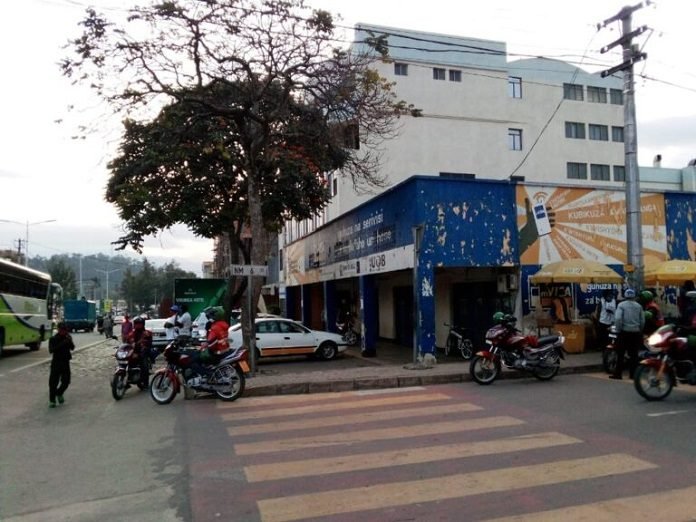
The Rwanda Investigations Bureau (RIB) has arrested at least two people alleged to have been part of a network that fabricated a genocide sentence against a businessman and sold his property.
A commercial complex located in Musanze district town was auctioned off last week on May 27. According to documents detailing the auction, the owner Sinayobye Emmanuel was convicted by a Gacaca court for his role in the 1994 genocide against the Tutsi.
Sinayobye was convicted on October 15, 2009, and his property was supposed to be auctioned to compensate families of his victims with up to Rwf 50m.
The problem however, Sinayobye has never been convicted of genocide. In fact, he says he was not in Rwanda during the genocide, as he had left the country some time earlier.
Despite his attempts to block the auction, he was unsuccessful. The sale took place last week.
According to local media, two people Gatambiye Gaspard and Dusabeyezu Seraphin have been arrested as their names feature in the auction dossier. RIB spokesman Marie Michelle Umuhoza said the suspects will aide in establishing the facts of what exactly happened.
The auction documents and Gacaca verdict shows that suspect Gatambiye Gaspard was to be compensated by Sinayobye, that is why the commercial complex was put on sale.
Lawyer Habiyakare Emmanuel, representing the businessman Sinayobye whose property was auctioned, says he has unquestionable evidence that shows the Gacaca verdict was fabricated.
It will be a strange turn of events if indeed it turns out a fake Gacaca verdict can be admitted into an auction, a system managed by licenced bailiffs. It will also raise eyebrows as to how many such fake documents are out there, or may have actually been executed.
The Gacaca are community courts set up following the genocide to try tens of thousands of genocide suspects. More than 2million cases were handled by teams of people selected from communities to try suspects of that particular village.
A suspect did not need to be present. Hundreds were tried and sentenced in absentia, including many who have later turned into government critics.
The Gacaca courts no longer operate, and the verdict files are stored in a secure government database. There have been cases where some people have returned to Rwanda from outside, only to find out they have a sentence.
A person with a Gacaca sentence can appeal to the conventional court system for a review of their verdict. A few verdicts have been overturned.
Source: The Chronicles















